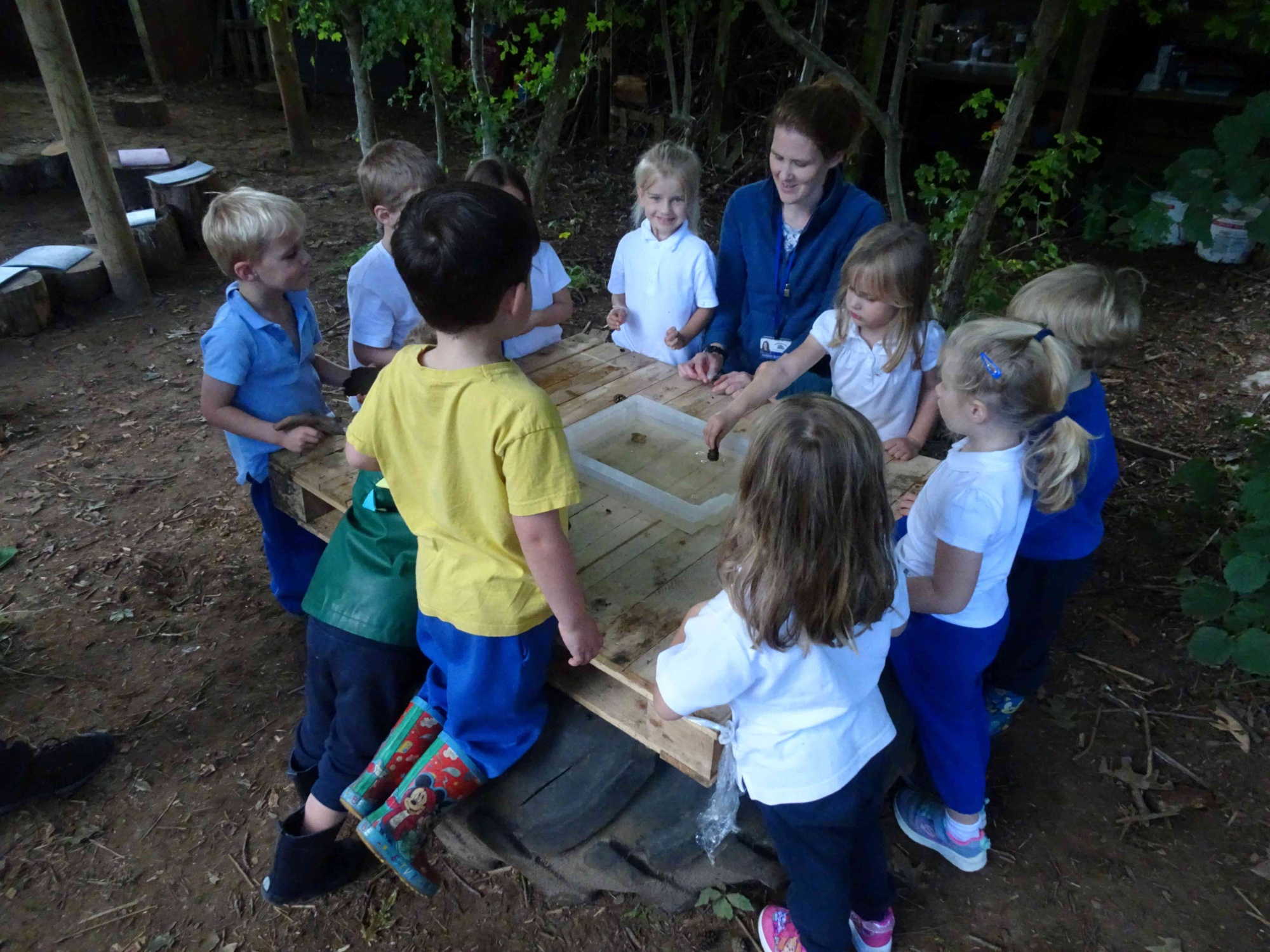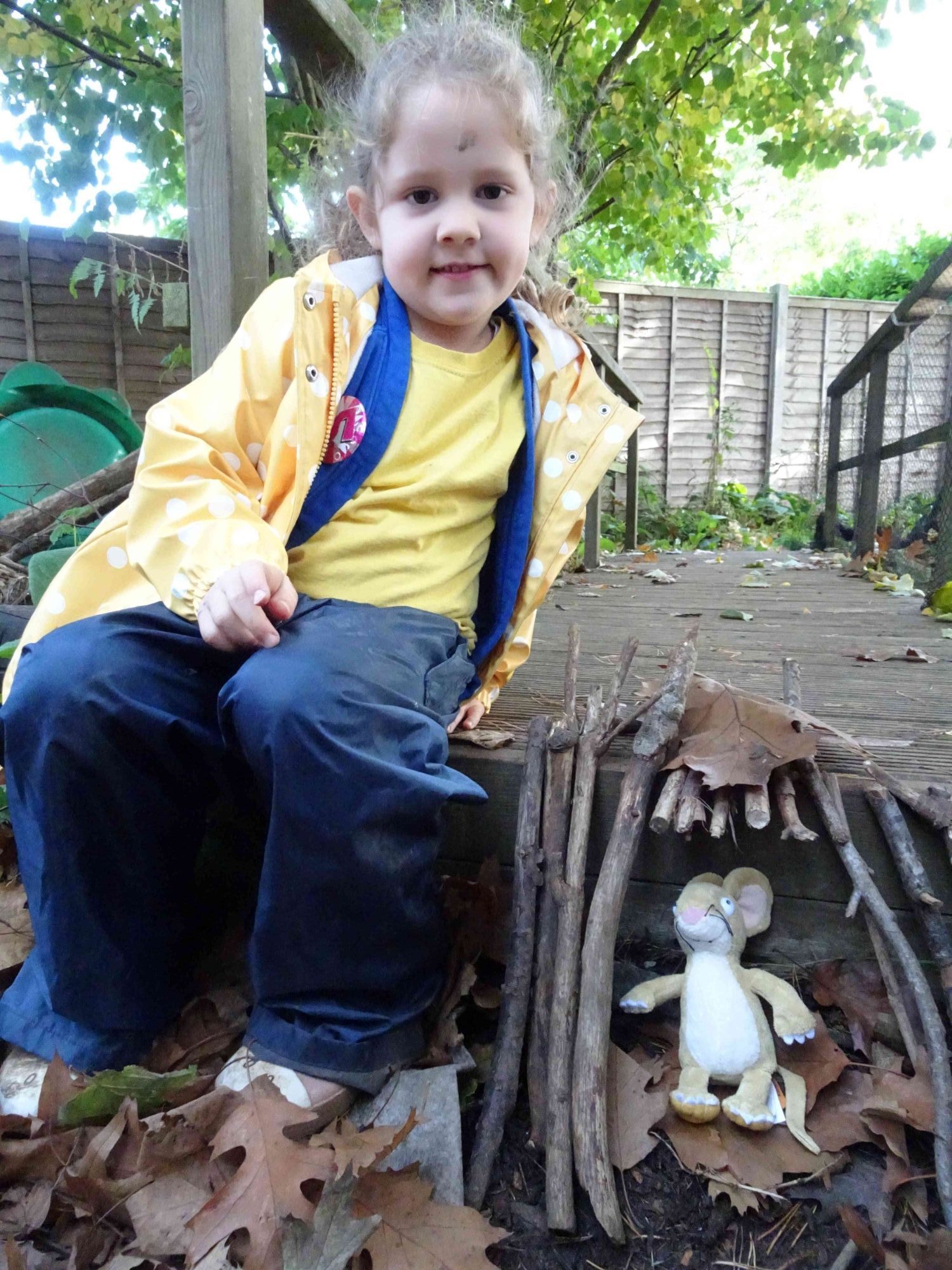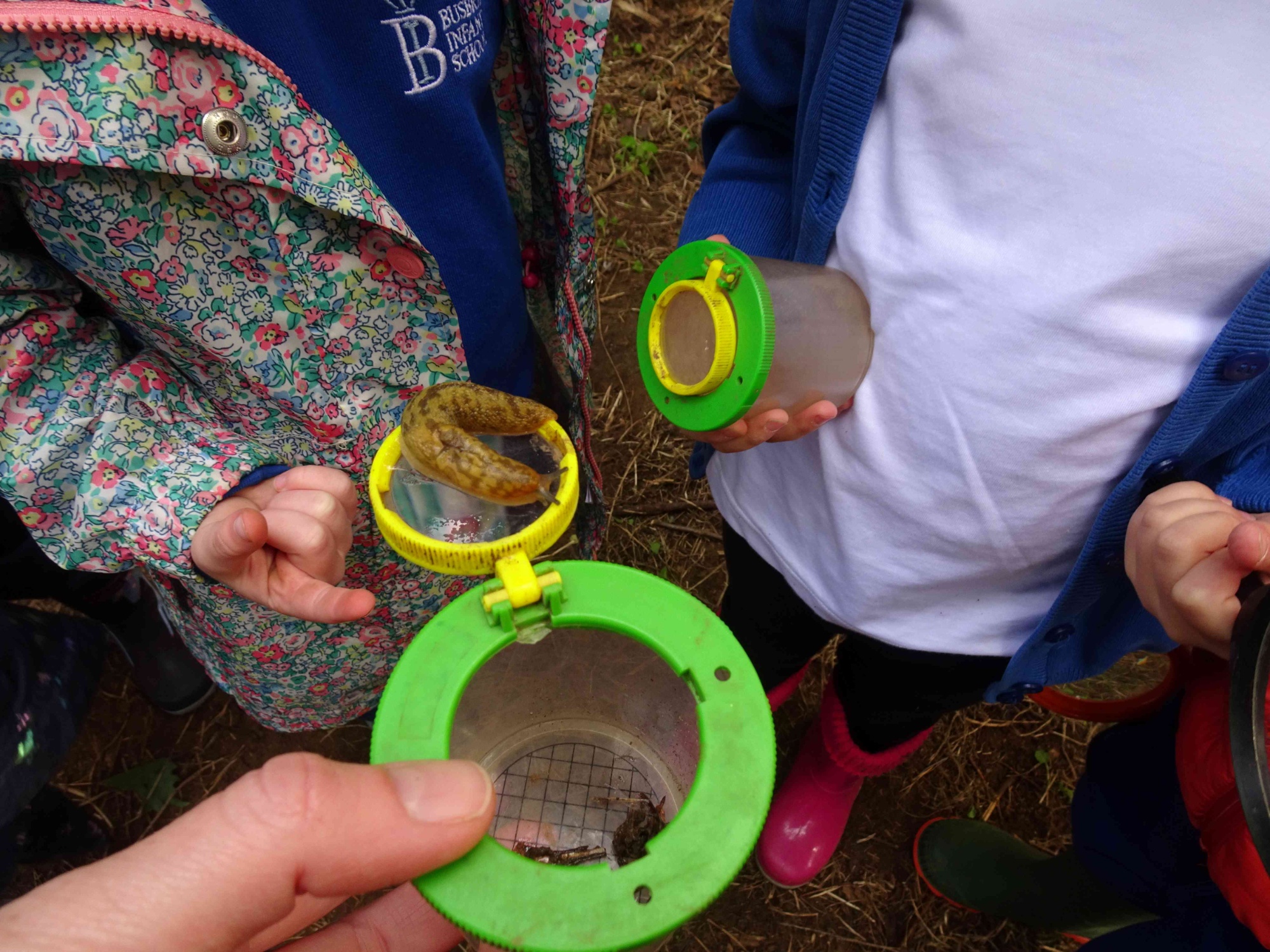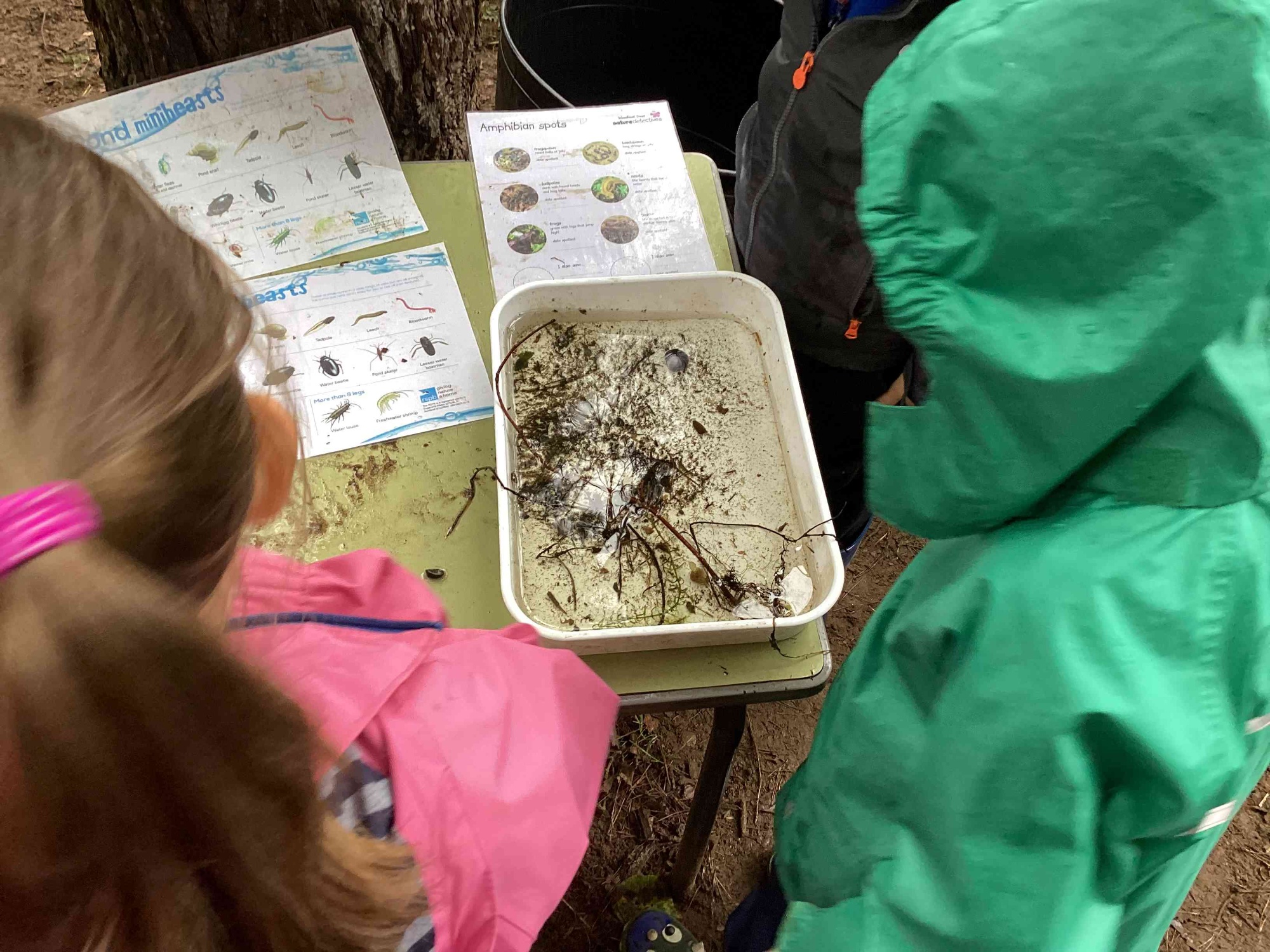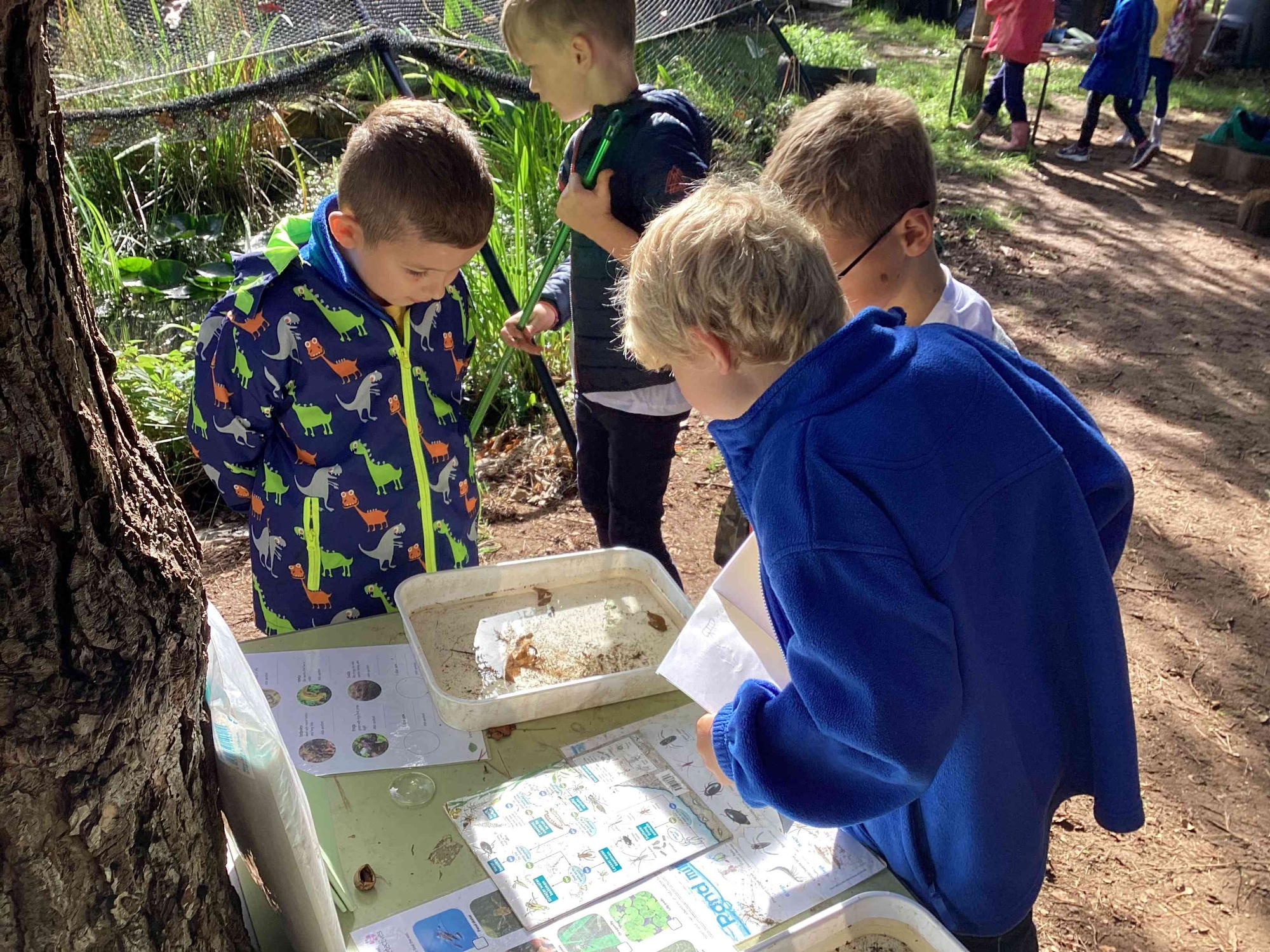Science
Science is at the heart of Woodland School. It naturally weaves its way into all Woodland School sessions. Often, opportunities are planned to embed the Science Curriculum, but equally often it comes up naturally through discoveries and natural enquiry.
The National Curriculum for Science states;
“The principal focus of science teaching in key stage 1 is to enable pupils to experience and observe phenomena, looking more closely at the natural and humanly-constructed world around them.”
“Most of the learning about science should be done through the use of first-hand practical experiences.”
This is exactly what we do at Woodland School, and we love it!
Some examples of practical, hands-on Science learning from Woodland School this term so far include;
Reception children
- Autumn changes
- Introduction of vocabulary ‘evergreen trees’ and ‘deciduous trees’
- Identifying mini beasts and observing them closely
- Bird identification
- Introduction to habitats
- What does an animal need from its home (when building a home for Mouse)?
- What is a living thing?
- Using our senses to explore the woodland
- Floating and sinking
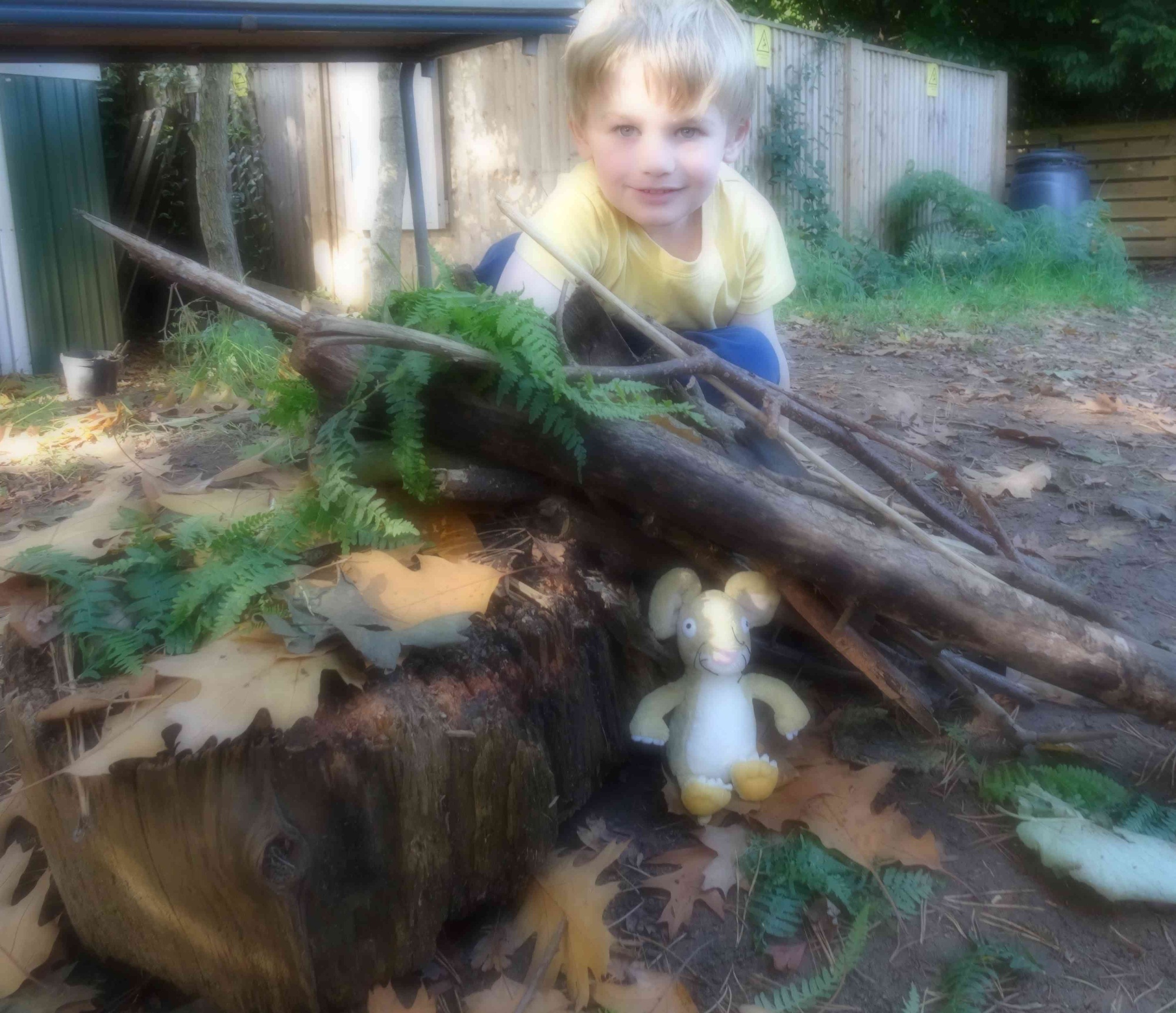
Year One children
- Tree identification
- Parts of a tree including the role of seeds
- Using classification keys to identify trees and pond species
- Deciduous and evergreen trees and their differences
- Autumn changes including day length changes
- Identifying mini beasts and observing them closely
- Bird identification
- The fire triangle – oxygen, heat, and fuel
- Fire safety
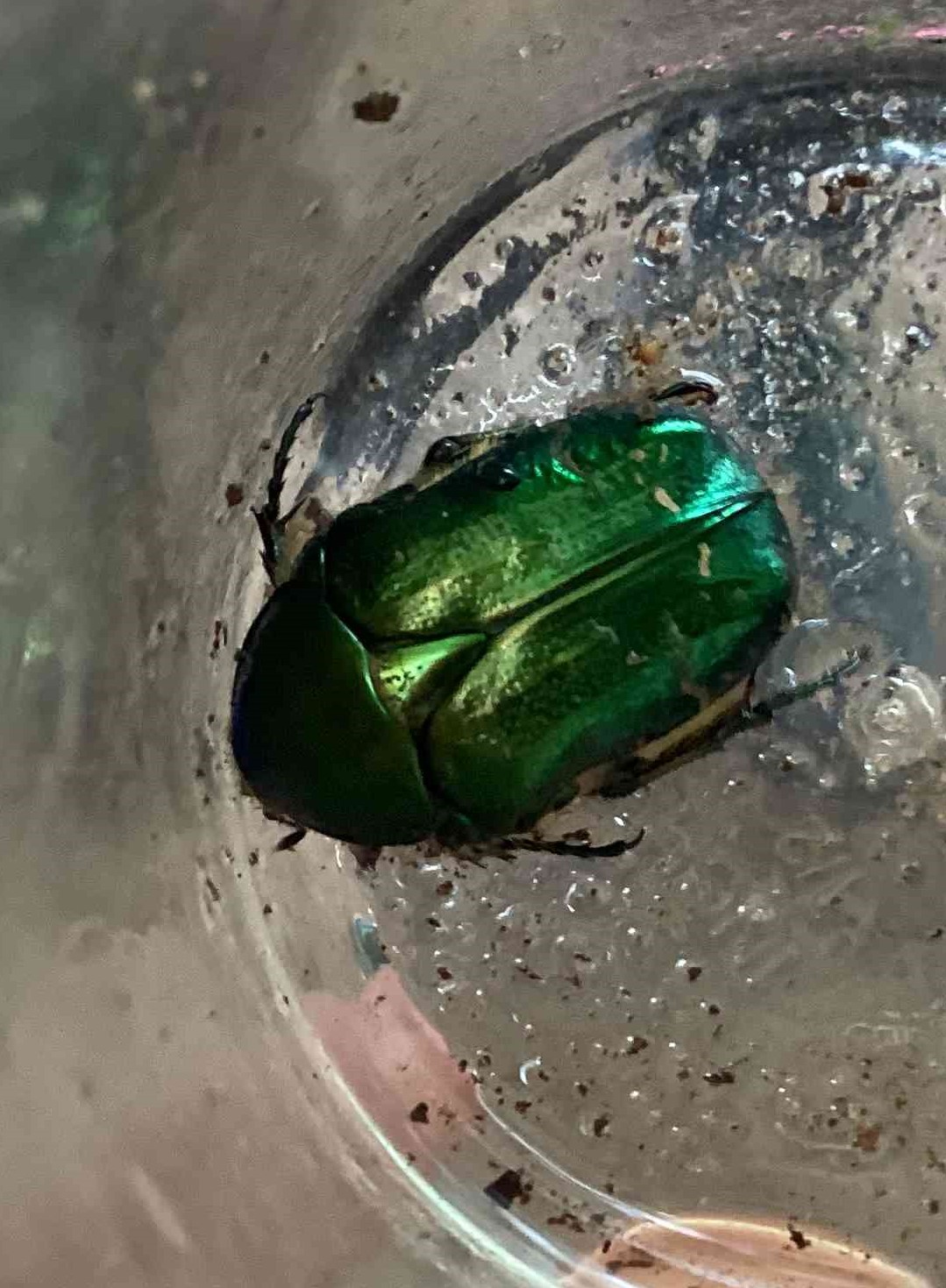
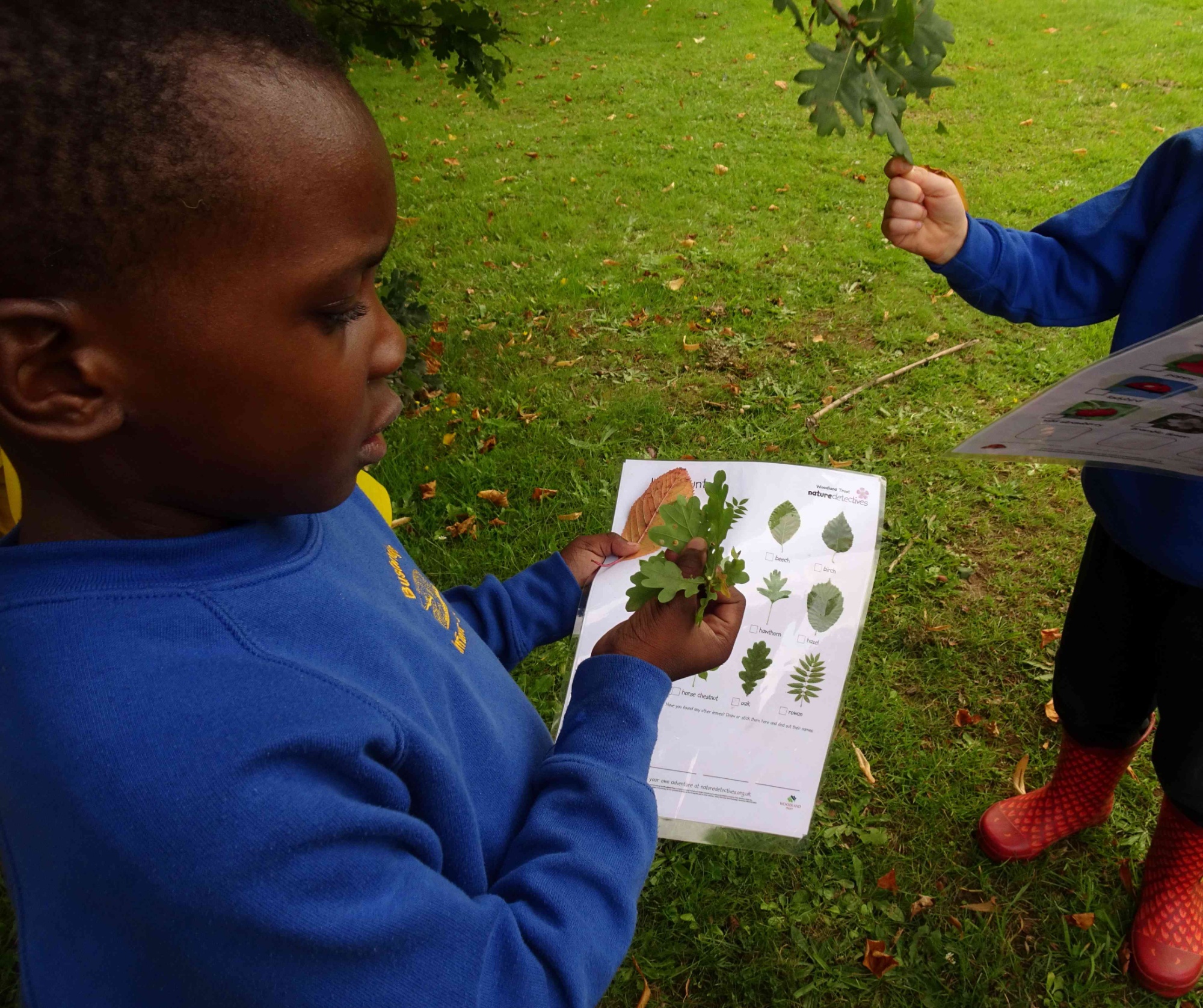
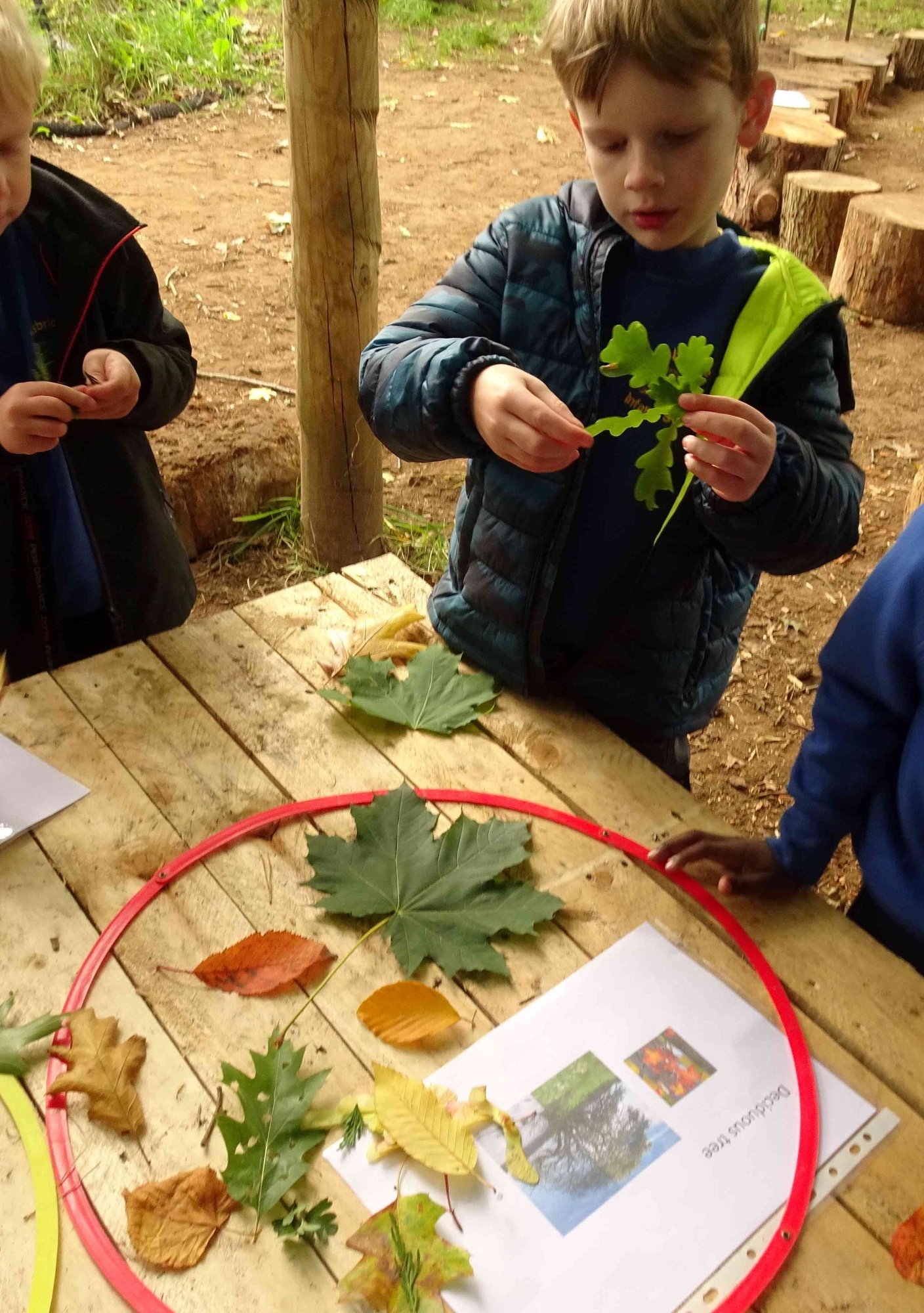
Year Two children
- Predator and prey vocabulary
- Native food chains
- All about worms. From parts of their body to their role in the environment.
- Spiders. Why they aren’t insects, what they eat, how they help us
- Autumn changes including the survival strategies of animals
- Migration
- Hibernation (introducing the term ‘brumation’)
- For some children that chose to make zip wires – friction and gravity
- Using classification keys to identify trees and pond species
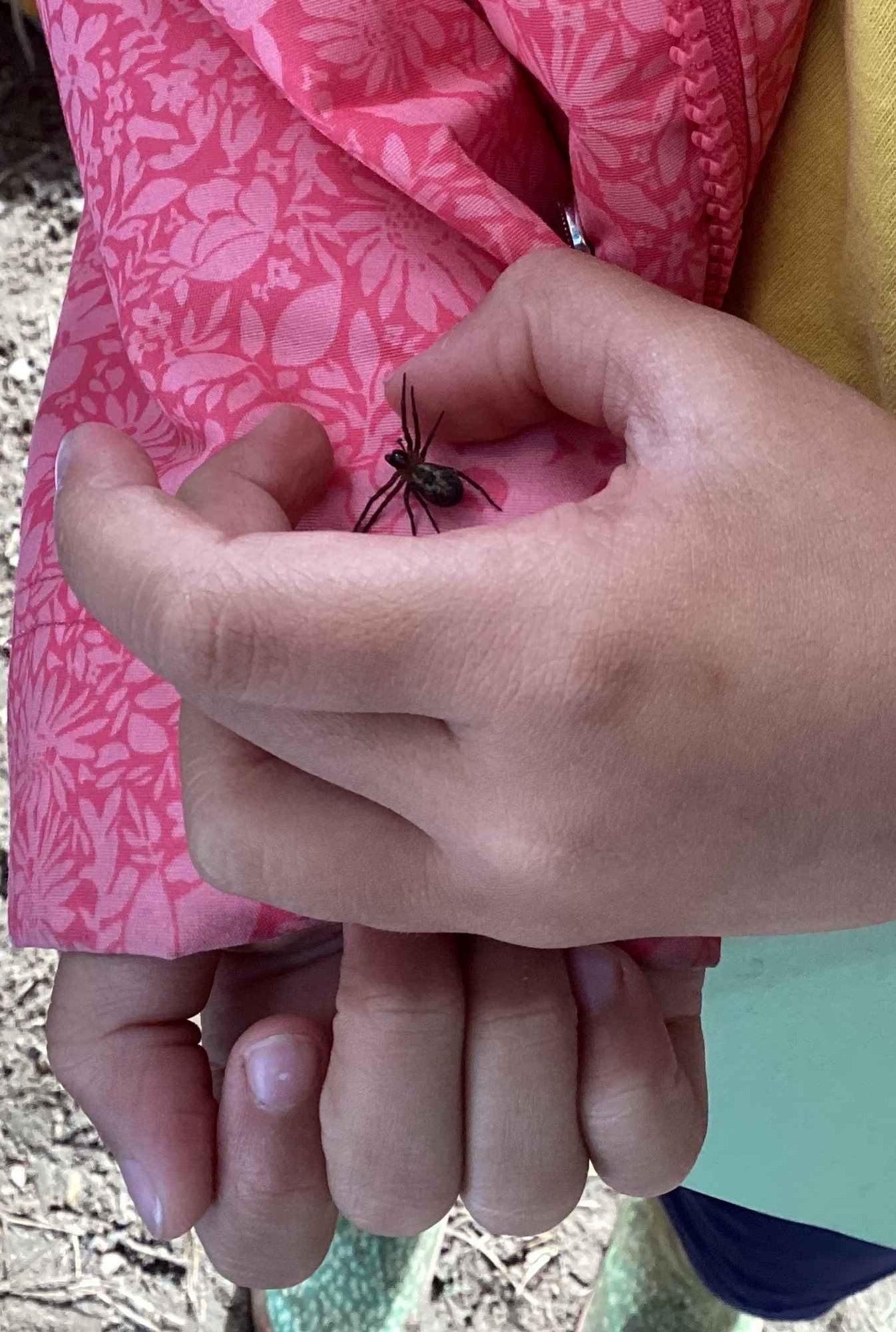
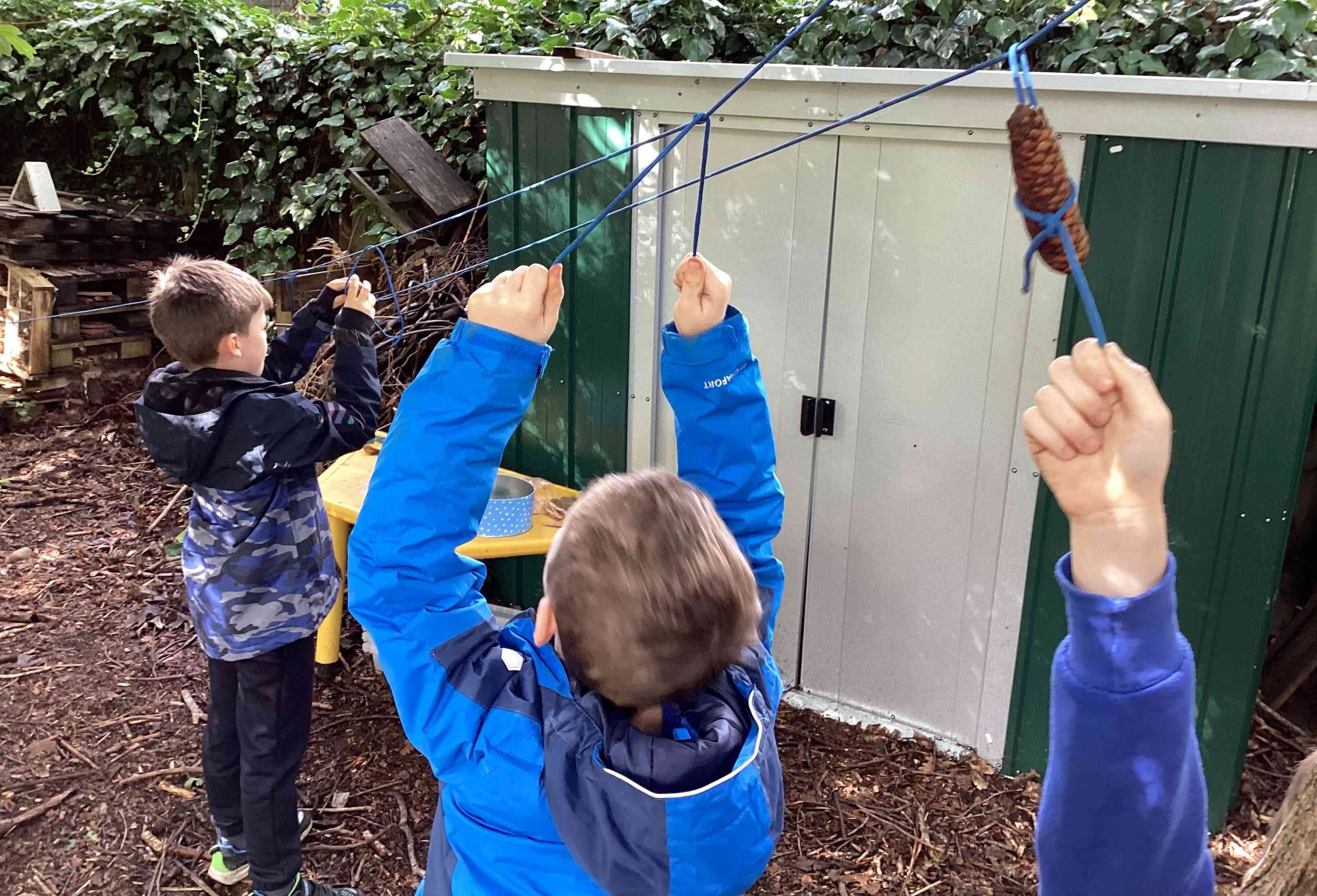
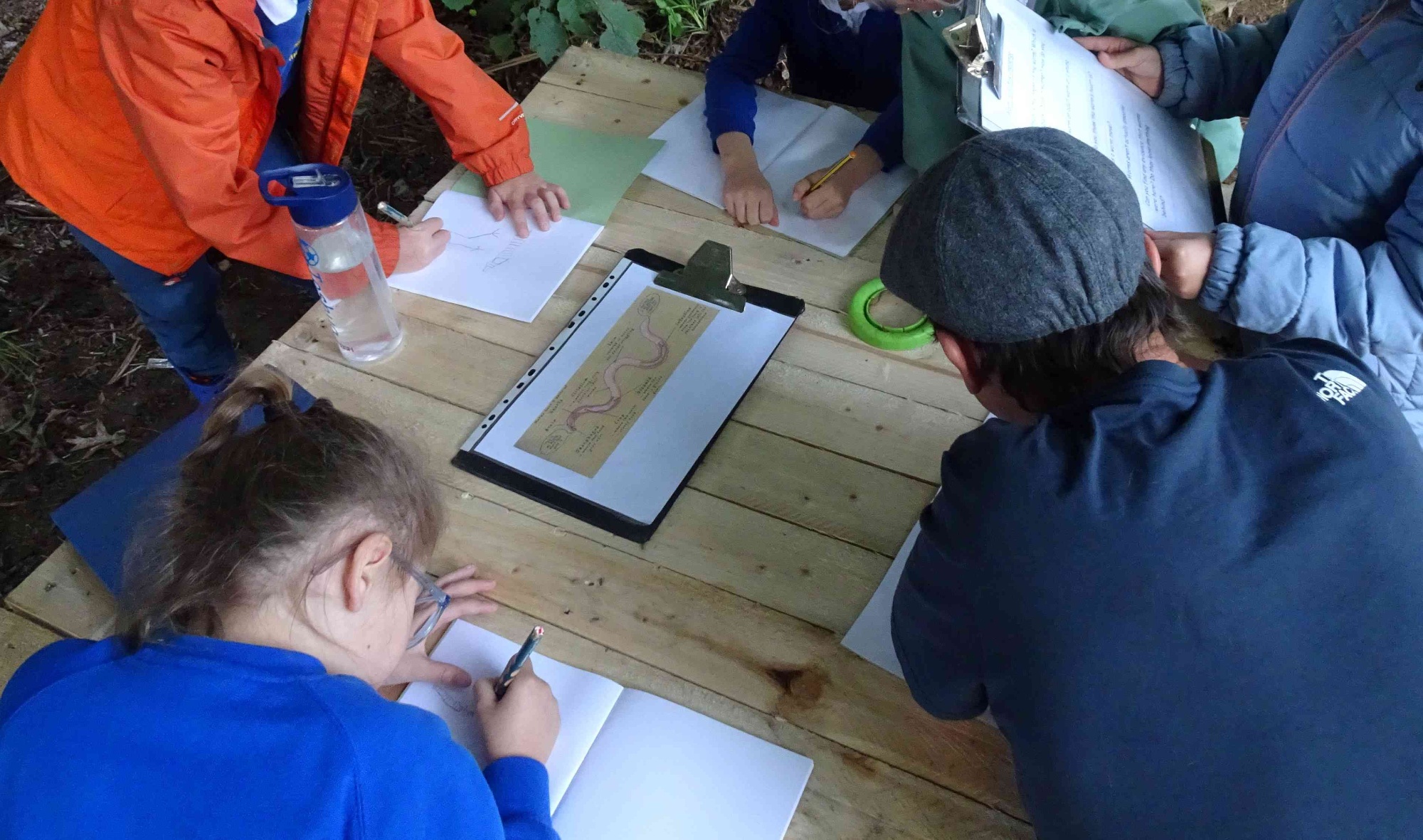
All this Science learning in the 8 weeks that have passed! Woodland School allows us to make the most of the opportunities arising from nature, the seasons, and the children's exploring. The higher ratios of adults to children enable us to ask the right questions to challenge their thinking, delve deeper into their learning and develop the knowledge and skills further all in The Continual Pursuit of Excellence.

